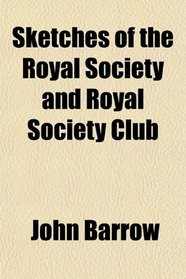Search -
Sketches of the Royal Society and Royal Society Club
Sketches of the Royal Society and Royal Society Club
Author:
Purchase of this book includes free trial access to www.million-books.com where you can read more than a million books for free. This is an OCR edition with typos. Excerpt from book: Section VIII. Mr. Alexander Dalrymple, F.R.S. Having thus given a slight account of all the Presidents of the Royal Society in my time, I shall now proceed t... more »
Author:
Purchase of this book includes free trial access to www.million-books.com where you can read more than a million books for free. This is an OCR edition with typos. Excerpt from book: Section VIII. Mr. Alexander Dalrymple, F.R.S. Having thus given a slight account of all the Presidents of the Royal Society in my time, I shall now proceed t... more »
ISBN-13: 9780217871761
ISBN-10: 0217871763
Publication Date: 8/18/2009
Pages: 114
Rating: ?
ISBN-10: 0217871763
Publication Date: 8/18/2009
Pages: 114
Rating: ?
0 stars, based on 0 rating
Publisher: General Books LLC
Book Type: Paperback
Other Versions: Hardcover
Members Wishing: 0
Reviews: Amazon | Write a Review
Book Type: Paperback
Other Versions: Hardcover
Members Wishing: 0
Reviews: Amazon | Write a Review




